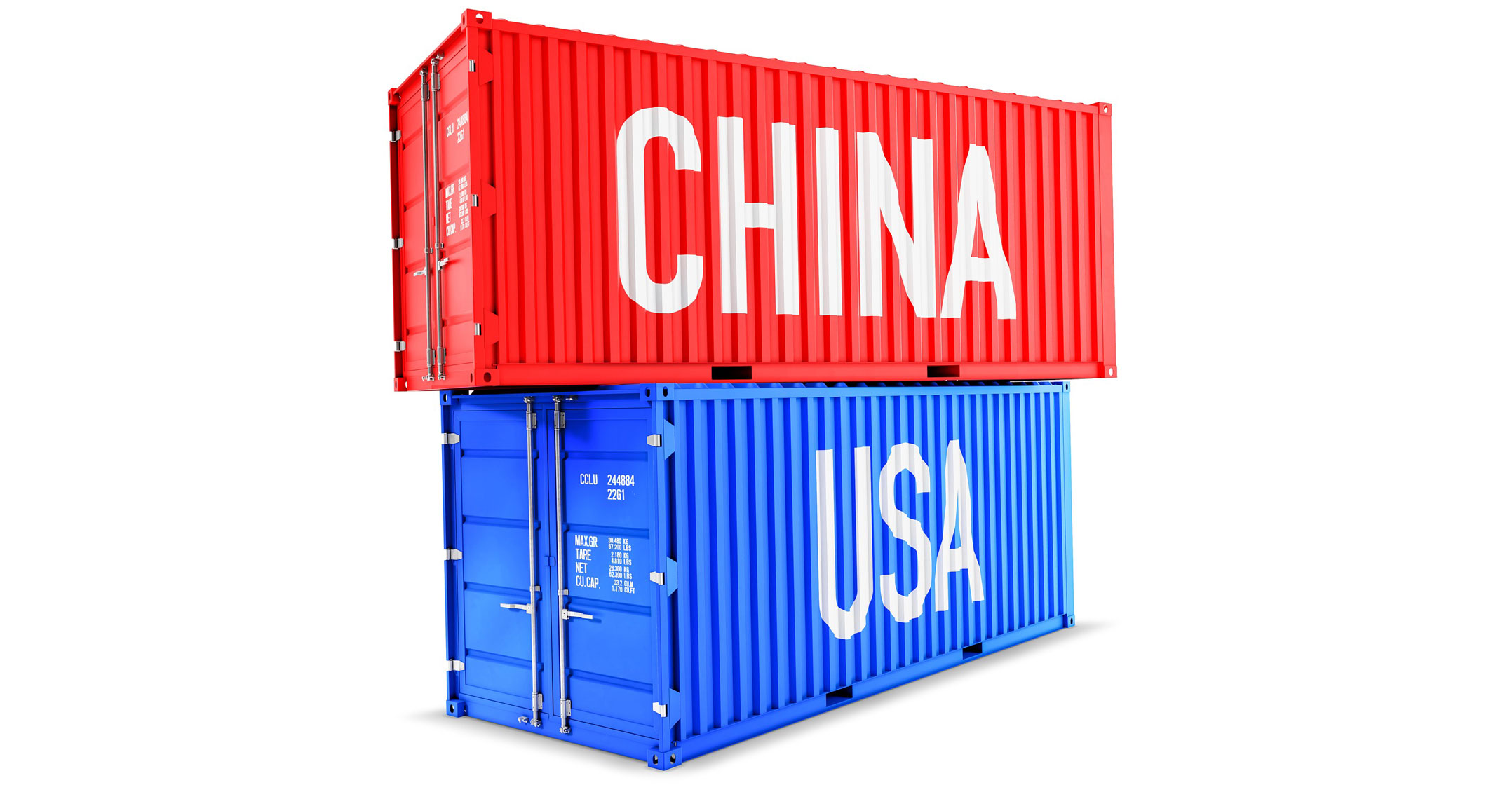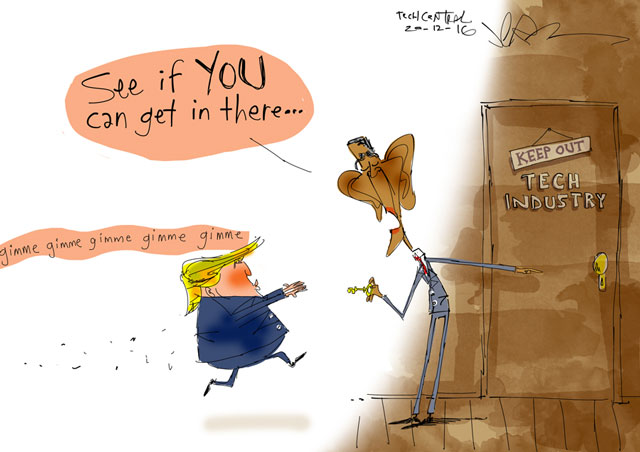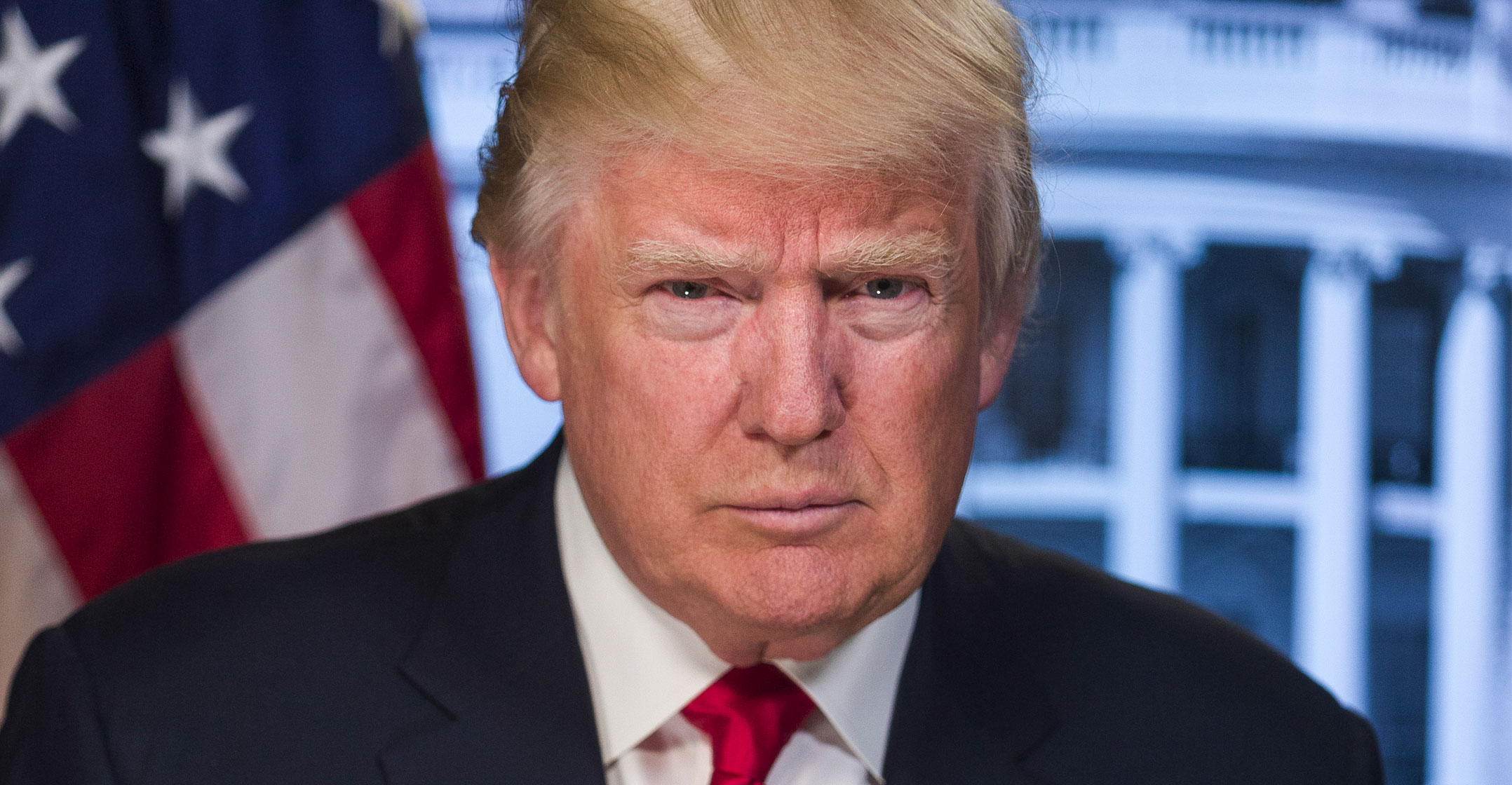 The Trump administration is pulling out the big guns in its push to slow China’s rise, with potentially devastating consequences for the rest of the world.
The Trump administration is pulling out the big guns in its push to slow China’s rise, with potentially devastating consequences for the rest of the world.
The White House on Wednesday initiated a two-pronged assault on China: barring companies deemed a national security threat from selling to the US, and threatening to blacklist Huawei from buying essential components. If it follows through, the move could cripple China’s largest technology company, depress the business of American chip giants from Qualcomm to Micron Technology, and potentially disrupt the roll-out of critical 5G wireless networks around the world.
“The Trump administration action is a grave escalation with China,” Eurasia Group analysts Paul Triolo, Michael Hirson and Jeffrey Wright wrote in a note. If fully implemented, the blacklist would “put at risk both the company itself and the networks of Huawei customers around the world, as the firm would be unable to upgrade software and conduct routine maintenance and hardware replacement”.
The threat is likely to elevate fears in Beijing that President Donald Trump’s broader goal is to contain China, leading to a protracted cold war between the world’s biggest economies. In addition to a trade fight that has rattled global markets for months, the US has pressured both allies and foes to avoid using Huawei for 5G networks that will form the backbone of the modern economy.
US suppliers to Huawei including Lumentum Holdings and Qualcomm are indicated to open lower in pre-market trading, after shares in Asian suppliers including Sunny Optical Technology Group and AAC Technologies Holdings dropped as much as 5% on Thursday.
In Europe, STMicroelectronics fell, while Huawei competitor Nokia gained 2%. Huawei has said it devotes about a third of its budget — some US$11-billion annually — to the acquisition of American components. It counts 33 US companies among its top 92 suppliers.
‘Significant’
“The negative impact on the global 5G market will be significant,” said Charlie Dai, a Beijing-based analyst at Forrester Research, nothing that Huawei is one of the market leaders globally. “Nokia and Cisco could address the gap to some extent, but the overall adoption will be slowed down, which eventually will be harmful to telco carriers and consumers around the world.”
The US commerce department said Wednesday it will soon put Huawei on an “Entity List” — meaning any US company will need a special licence to sell products to the world’s largest networking gear maker. Since American companies dominate semiconductors, that could smother Huawei’s production of everything from 5G base stations to mobile phones. It may not even be able to use Google’s Android, the most popular operating system globally for smartphones. A similar move last year against ZTE — China’s second biggest telecoms equipment company — nearly forced the company out of business.
“This could potentially lead to Huawei’s destruction,” said Scott Kennedy, a China expert at the Centre for Strategic and International Studies. “You can’t underestimate the significance. It’s their most important company and threatening it in this way will generate a massive public response as well as from the Chinese government. The bilateral trade talks were on thin ice and this could derail them entirely.”

At the heart of Trump’s concerted campaign is suspicion that Huawei aids Beijing in espionage while spearheading China’s ambitions of becoming a technology superpower. The US justice department also accuses it of wilfully violating sanctions on Iran, and last year engineered the arrest of the eldest daughter of Huawei’s billionaire founder.
Huawei, which has denied those allegations, said on Thursday it was “ready and willing” to engage with the US to ensure product security. Restricting it from doing business “will only serve to limit the US to inferior yet more expensive alternatives”, it said in a statement.
China’s government said it will take “all necessary measures” to defend its companies.
“We resolutely object to any country, based on their own laws, unilaterally sanctioning Chinese entities,” ministry of commerce spokesman Gao Feng said at a regularly scheduled briefing in Beijing on Thursday. “We also object to the generalisation of the national security concept and abuse of export control methods.”
The lack of alternatives is one reason that it’s far from certain the US will make good on its threat to cut off Huawei. Observers for months had been dismissing the possibility, in part because it would hurt some of America’s largest technology corporations. The Trump administration has also been pressuring allies to bar Huawei equipment from their communications networks for security reasons. But the US effort had largely failed, as even the UK declined to join the American call for a boycott.
Pricier equipment
If the US handicaps Huawei by cutting off suppliers, countries and telecoms carriers around the world that are already spending billions to build 5G networks may have to resort to pricier equipment from Nokia and Ericsson. Tying up a chunk of the world’s 5G gear supply would slow the build-out of a technology that underpins future services from self-driving cars to smart homes and advanced medicine.
Huawei appears to have anticipated this possibility. It’s been developing and designing its own chips for years, which it now uses in many of its own smartphones. It’s reportedly even developing its own operating software to run phones and servers.
For now, though, it remains heavily reliant on American technology.
Huawei’s base station, smartphone, server and maritime cable businesses simply cannot run without Qualcomm baseband and processor chips. There are alternatives — but from American peers such as Intel, Micron and Broadcom.

It also depends on smaller American suppliers in key areas: Lumentum Holdings for optical cable; Amphenol for fibre-optic connectors; Inphi for analogue chips; Qorvo and Analog Devices for radio-frequency semiconductors in both 4G and 5G; and Western Digital for storage. Texas Instruments supplies it with digital signal processing chips. Huawei even uses Oracle software in products sold to state-owned companies.
ZTE provides a road map for what may happen next. Huawei’s much smaller rival in 2017 ran afoul of the commerce department for violating the same Iranian sanctions, and then lying about it. The subsequent ban on American exports pushed the company to the brink of extinction, before Trump intervened as part of trade negotiations with Beijing.
A blanket ban would hurt not just US companies, but also alienate American allies around the world. Many have resisted Washington’s attempts to steer them away from Huawei, for reasons ranging from economics to just the simple fact that the Shenzhen-based company’s 5G technology is for now considered superior.
That’s why some observers, including the Eurasia Group, argue that the White House is unlikely to bring the full force of a blacklist to bear. Instead, it argued, the Trump administration is likely to issue export licences to all of its American companies while retaining the option in future to pull them if needed.
Roger Sheng at market research firm Gartner draws parallels with the Chinese fable of the Monkey King, whose powers are constrained by a magic circlet that his handler constricts — painfully — when the deity misbehaves.
“The US is putting a circlet around the head of Huawei,” said Sheng, who is based in Shanghai. “The impact goes well beyond its 5G ambitions because without American suppliers like Qualcomm and Marvell, it can’t even maintain normal operations.” — Reported with assistance from Debby Wu, Dandan Li, Philip J Heijmans, Miao Han and James Mayger, (c) 2019 NewsCentral Media

